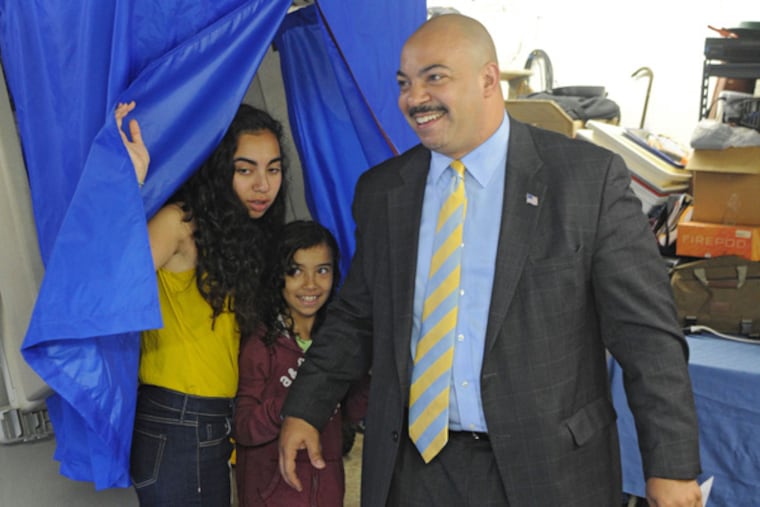Philly voters select judges, including Traffic Court
The smattering of city voters who went to the polls for Tuesday's primary picked 12 would-be judges, including three potential new members of Traffic Court, an institution so steeped in corruption that state lawmakers are trying to abolish it.

The smattering of city voters who went to the polls for Tuesday's primary picked 12 would-be judges, including three potential new members of Traffic Court, an institution so steeped in corruption that state lawmakers are trying to abolish it.
At the top of the judicial ticket, voters selected candidates for six open seats on Common Pleas Court and three open seats on Municipal Court.
In Philadelphia, a city with a mammoth Democratic majority and a powerful party organization, the Democratic primary winners are near-locks to assume the bench.
The six Democratic Common Pleas Court victors included Anne Marie Coyle, Timika Lane, Daniel D. McCaffery, Joe Fernandes, and Giovanni Campbell. With 95 percent of the vote counted, Sierra Thomas Street held a 500-vote lead on the final spot.
Coyle appeared to be the winner in a GOP primary that included just one other candidate, Kenneth J. Powell Jr.
The three Democratic Municipal Court winners were Martin Coleman, Fran Shields, and Henry Lewandowski. There were no Republican candidates.
Also Tuesday, District Attorney Seth Williams and his presumed GOP challenger, Daniel A. Alvarez, won uncontested primaries. They will face off in the November general election.
The turnout for the primary appeared to be minuscule, making Democratic City Committee and labor endorsements - as well as their sample ballots - especially important in the judicial races, where voters may have little knowledge of the candidates.
Of the nine apparent winners for the top courts, only Coyle and Street failed to land the party's endorsement. Street is the ex-wife of Sharif Street, son of former Mayor John F. Street.
The Philadelphia Bar Association, which employs a 30-member panel to evaluate the candidates, recommended seven of the nine candidates, rebuffing Street and Lewandowski, a lawyer for the electricians union, a political juggernaut.
Common Pleas Court judges earn about $173,000. Municipal Court judges make about $169,000.
As for the beleaguered Traffic Court, 25 Democrats and two Republicans were running for three seats and the $91,000 salaries that come with them, despite a move in Harrisburg to eliminate their jobs.
The three winners on the Democratic ticket - Omar Sabir, Marnie Aument Loughrey, and Donna DeRose - all were endorsed by the party.
Last fall, nine former judges on the court were charged with fraud and conspiracy in the fixing of tickets, many for politically connected traffic scofflaws. Three have since pleaded guilty.
Other controversies - including one involving a judge who showed a cellphone picture of his genitals to a female court worker - have dogged the court in recent years.
Since the indictments, the court has been staffed largely by unelected judges. The state Supreme Court moved in late April to suspend the lone remaining elected judge, Christine Solomon, for her refusal to cooperate with an administrative review of the court.
In the aftermath of the scandals, lawmakers introduced a bill that would abolish the court and set up hearing officers to adjudicate traffic violations.
The bill has passed the state Senate and is expected to pass the House next month. If the bill becomes law before the November general election, the three Traffic Court vacancies would be removed from the ballot.
Abolishing Traffic Court, however, would require a constitutional amendment, a longer process that means the court could not be eliminated until 2015.